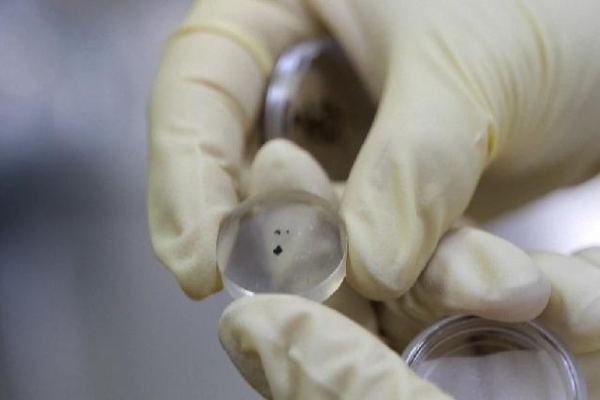Scientists have uncovered the oldest direct evidence of hot water activity on Mars, shedding new light on the planet’s potential to support life in its early history.
Researchers from Curtin University in Australia analyzed a 4.45-billion-year-old zircon grain found in NWA 7034, a Martian meteorite nicknamed "Black Beauty" discovered in the Sahara Desert in 2011. Their findings, published in the journal Science Advances, suggest that Mars had hydrothermal systems during its early crust formation, which could have created environments suitable for life.
Using advanced microscopy and geochemical analysis at the nanoscale, the team identified chemical zoning patterns and tiny inclusions of magnetite within the zircon grain. These features are consistent with minerals formed in the presence of water-rich fluids, indicating that Mars’ crust interacted with water over 4.1 billion years ago during the Pre-Noachian period.
"Detecting signs of hot water on Mars from 4.45 billion years ago is incredibly exciting," said Dr. Aaron Cavosie from Curtin University. "Despite meteorite impacts during Mars’ early history, the presence of water could have provided habitable conditions."
Hydrothermal systems, which involve hot water circulating through the planet’s crust, are known on Earth to provide heat and nutrients essential for life. The study also found that these ancient hydrothermal systems were linked to strong remnant magnetization in the Martian crust, offering evidence of a geodynamo—a global magnetic field—during Mars’ early history.
The zircon grain’s characteristics resemble those of similar minerals formed on Earth in the presence of water, suggesting that Mars hosted wet and dynamic conditions very early in its history. This discovery extends previous evidence of water activity on Mars, such as river-like landforms and clay minerals, back to the planet’s primary crust formation.
"Our findings imply that Mars may have had habitable conditions even earlier than Earth," added Dr. Cavosie. "This opens up new avenues for understanding the early history of Mars and the potential for life on the Red Planet."
Reference(s):
Ancient evidence of hot water points to an early habitable Mars
cgtn.com








